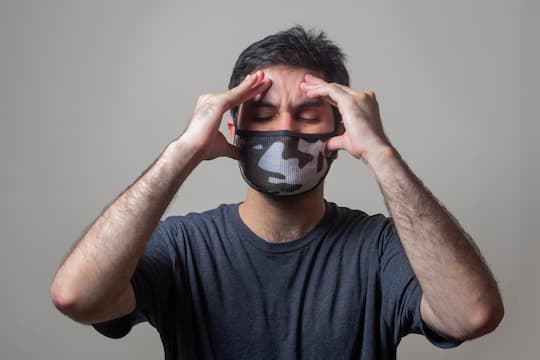Do Omicron symptoms look like a common cold?
During winter time, viruses circulate more easily and due to lack of sunlight our immune system can be affected negatively, therefore, we are more likely to catch a cold.
COVID and other respiratory infections like influenza are rapidly transmitted between people.
Infected people with symptoms or without can spread the virus.
COVID is more contagious than flu viruses and some of its variants, such as Omicron, spread through people even more quickly.
Omicron is the latest strain of COVID, but due to its cold-like symptoms, it is harder to distinguish from a heavy cold.
The warning signs associated with Omicron to look out for are:
- Mild or severe fatigue
- Scratchy throat
- Dry cough
- Headache
- Runny nose
- Sneezing
- Muscle aches
PCR tests for COVID can detect the SARS-COV-2 virus, but genome sequencing will flag which variant a person is infected with.
The limited data on Omicron suggests that this specific strain is quite different with other COVID variants.
Omicron shares many similar symptoms with a common cold while classical COVID symptoms including loss of taste or smell, fever, and continuous cough are less likely.
According to the ZOE COVID Symptom study, the top five signs for Omicron infection include fatigue, runny nose, sneezing, headache, and sore throat.
Despite that, the UK government still lists loss of sense of smell or taste, cough, and fever, which are the common symptoms of the other COVID variants.
Professor Tim Spector, the lead scientist of this report, said the symptoms should have been updated earlier:
“The messaging from the government is just not clear on this.
I think most people know what cold-like symptoms are.
I would probably just add [to the list]: ‘Have you got cold-like symptoms?’
We need to educate people, go back to the basics, and say that if you’ve got cold-like symptoms keep away from people.
You shouldn’t be waiting for the three classic symptoms.”
Professor Spector emphasises that the public needs to be informed about what symptoms to watch out for, especially in cities like London where the Omicron infection rate is very high.
“If you do have symptoms of a mild or bad cold, it’s highly likely that you’ve got COVID if you’re in an area like London at the moment.”
A study by Zhang et al., on Omicron suggests that people vaccinated against COVID and those previously infected will have a stronger defence against this new variant.
The study was published in the journal Emerging Microbes & Infections (Zhang et al., 2021).

